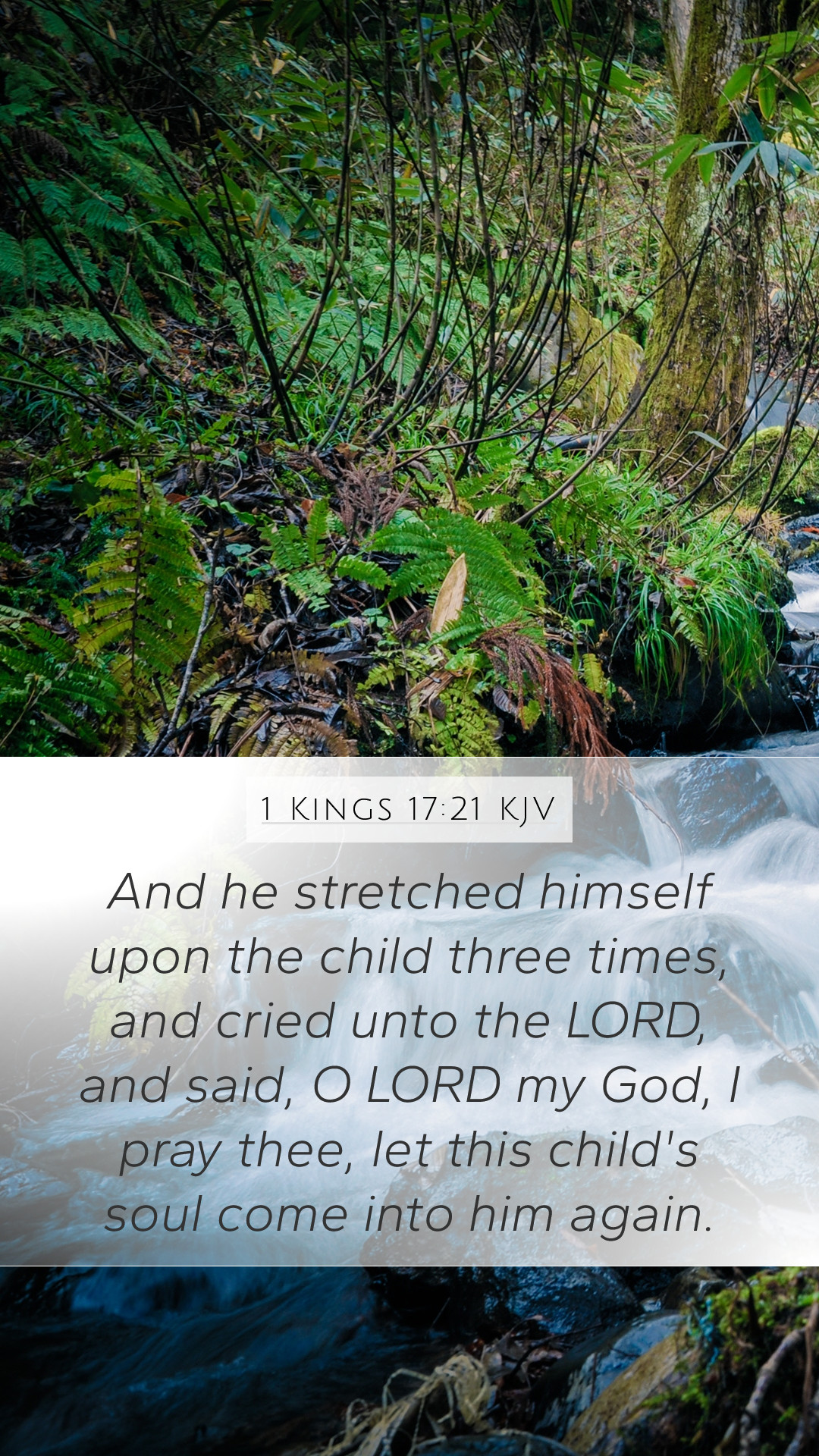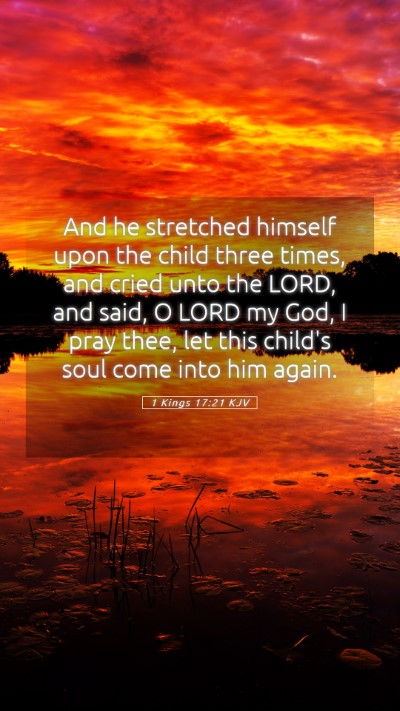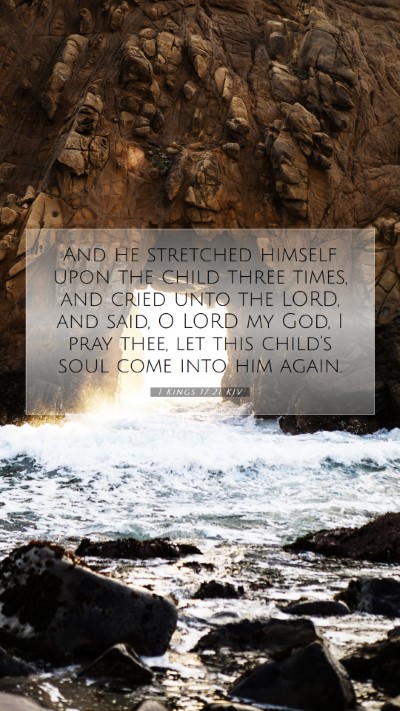Understanding 1 Kings 17:21
The verse 1 Kings 17:21 captures a profound moment in the narrative of the prophet Elijah, reflecting deep themes of faith, prayer, and divine intervention. Below is an analysis that combines insights from respected public domain commentaries.
Verse Text
“And he stretched himself upon the child three times, and cried unto the Lord, and said, O Lord my God, I pray thee, let this child's soul come into him again.” (1 Kings 17:21)
General Analysis
This passage illustrates Elijah's desperate prayer and fierce determination to restore the life of the widow’s son. It reflects profound biblical themes such as resurrection, the power of prayer, and God’s compassion.
Key Themes
- Power of Prayer: Elijah's action exemplifies the earnestness and fervency of prayer. His three stretches can symbolize thoroughness and persistence in seeking God's intervention.
- Divine Intervention: The miraculous restoration of the boy is indicative of God's authority over life and death, showcasing His sovereignty and compassion.
- Prophetic Role: Elijah acts as an intermediary, demonstrating the role of prophets not only as messengers but also as agents of God’s mercy.
Commentary Insights
Matthew Henry’s Commentary
Matthew Henry highlights the compassion of Elijah as he not only declares the boy dead but also takes on the burden of his mother’s grief. Elijah’s prayer signifies a deep reliance on God, emphasizing that life ultimately comes from Him. This moment serves as a powerful reminder of God's willingness to hear and answer prayer.
Albert Barnes’ Commentary
Albert Barnes elaborates on the structure of Elijah’s petition, noting the specific plea for the boy's soul to return. Barnes identifies the act of stretching over the child as a symbolic demonstration of identification with the boy's plight, illustrating the closeness between the prophet and the child. The number of times Elijah stretched himself can also be understood symbolically, representing a thorough appeal for divine favor.
Adam Clarke’s Commentary
Adam Clarke provides insights into the cultural and historical context of the passage, emphasizing that this moment showcases Elijah’s role during a time of national crisis. Clarke notes the significance of the widow's son as her only hope and thus the weight of Elijah’s responsibility to restore hope not just for the boy but for the mother, who symbolizes the lost and hopeless. This act of resurrection foreshadows greater themes of redemption found later in scripture.
Application to Daily Life
1 Kings 17:21 encourages readers to understand the power of prayer in times of despair. The verse suggests that earnest prayer can alter circumstances, and God’s mercy is always available to those who seek Him earnestly.
Connecting with Modern Faith
The emotional depth of the story enriches personal spiritual practices. In a world where many feel disconnected or hopeless, this passage serves as a reminder that prayer is a channel through which believers can seek divine intervention.
Cross References
- James 5:17-18 - Reflects on Elijah's prayer life and the power of fervent prayer.
- 2 Kings 4:32-35 - Another miraculous raising of a child that emphasizes God's power through prophets.
- John 11:43-44 - Jesus raises Lazarus, underscoring themes of resurrection and divine authority over death.
Conclusion
In summary, 1 Kings 17:21 presents powerful insights into the nature of prayer, the role of the prophet, and the depths of God’s compassion. It teaches the significance of turning to God in desperate times, offering hope to those who believe. Through its rich narrative, this verse serves as a cornerstone for understanding God’s character and His responsiveness to human anguish.


